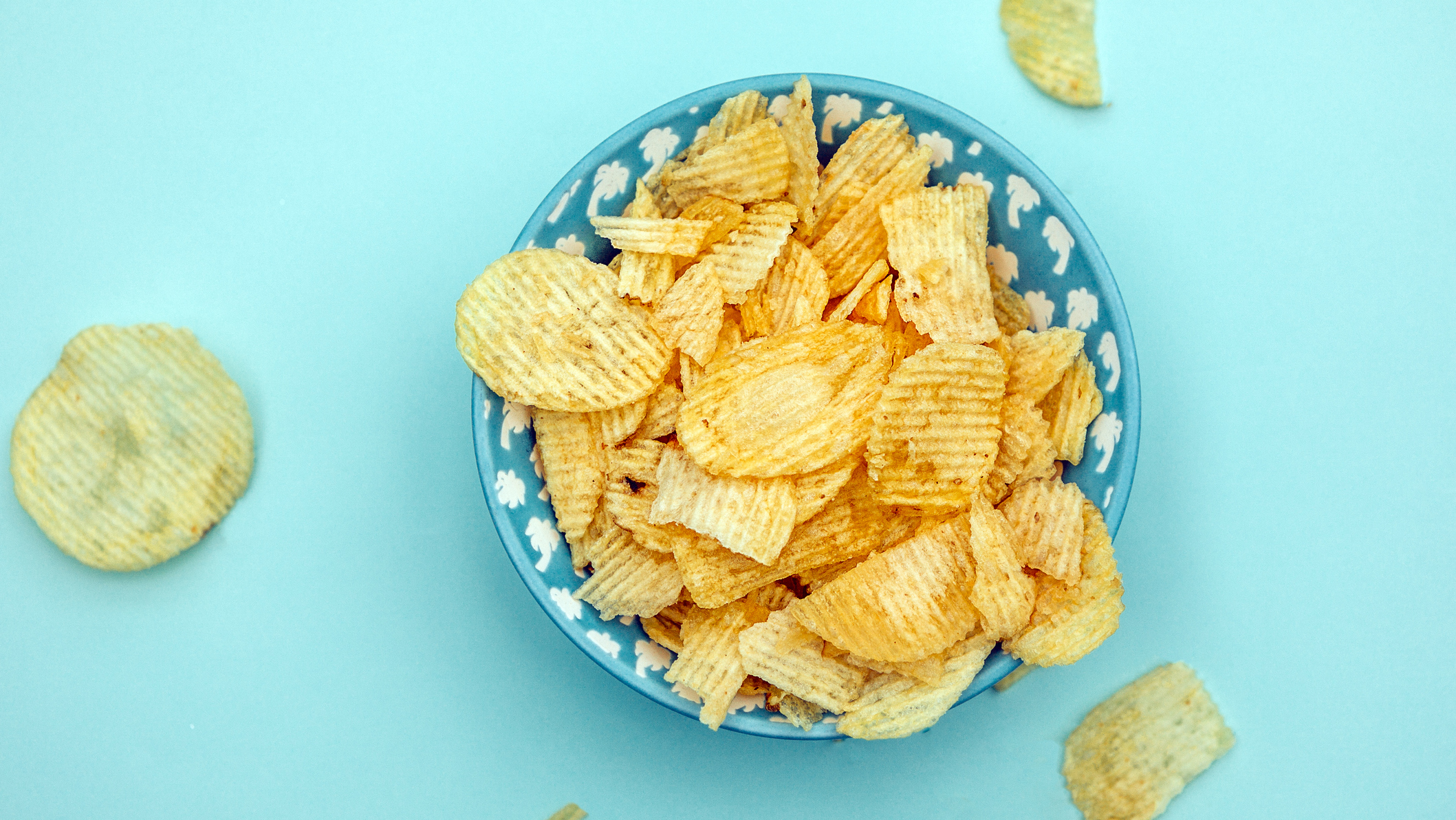
We all know that a banana is a healthier snack than a chocolate bar. But often when hunger strikes it’s easier to reach for less nutritious convenience snack foods such as crisps, cakes, and biscuits, rather than trying to find a healthier option.
Of course, with some careful planning, it is possible to arm yourself with satisfying snacks based around whole, plant-based foods. But should crisps and chocolate be banned from your diet completely? Or is there a reason to include them?
I spoke to Emily Wood, a clinical nutritionist and weight loss coach at Voy, a medicated weight-loss program in the UK, who has a surprising attitude to the snack foods that are usually framed as “bad”.
“The ultra-processed, refined carb and low-fiber snacks that tend to be higher in saturated fat are definitely associated with worse health outcomes long term if eaten in large quantities,” says Wood. “But food isn't just fuel. It's not just about the things that we need. It's also about the experience that we have around food. Restricting any food can be unhealthy in a different way, in terms of the psychology around food and our relationship to it.”
“All types of food, including chocolate, sweets and crisps, should be incorporated into daily meals and snacks,” says Wood. “Avoiding these can give us a sense of deprivation that may lead to overindulgence later on.”
“Including some of those foods like crisps and chocolate in small amounts is a great idea, alongside meals or snacks that are focused around whole foods. For example, some carrot or red pepper sticks with hummus, alongside some crisps. A well-balanced snack helps us get a variety of macronutrients, but also actually fills us up—sometimes those less nutritious foods like crisps and chocolate don't fill us up that easily.”
“Often people tend to grab a snack that only provides one food group, for example, something that’s rich in carbohydrates and is not paired with protein, fats or much fiber. This can mean these snacks won't keep you satisfied for as long.”
While adding a little of what you crave to a more nutritious snack every now and then is a good idea if it makes you happy, it’s best to plan varied, nutritionally-balanced snacks for when hunger strikes. “Pairing foods much like you would in a meal but in smaller portions can make a great snack, such as yogurt with mixed berries and granola, or hummus with mixed vegetable sticks and wholemeal crackers.” Including a range of food groups will help give you slow-release energy as well as being more nutritious.
Wood has provided some examples of well-balanced snacks that she recommends to her clients.
- Chopped vegetables such as carrots, red pepper and cucumber with hummus and whole-grain pita bread
- Full-fat Greek yogurt with frozen raspberries, banana and honey, topped with mixed nuts or seeds
- Mixed unsalted nuts with apple slices and a touch of dark chocolate
- Glass of milk with a bagel, nut butter and raspberries
Voy is a weight-loss solution that includes clinically proven medication, personalized programs and access to top clinicians and lifestyle coaches.







